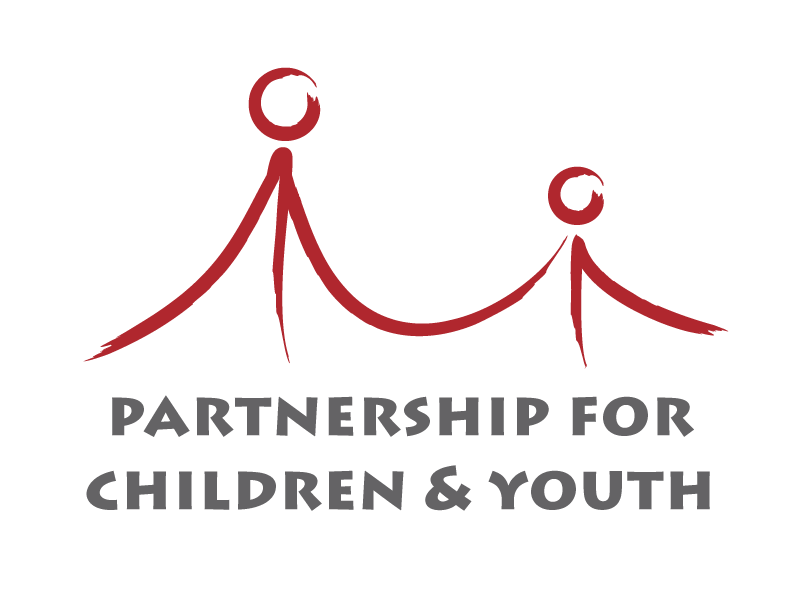our History
Over the past 20 years, Partnership for Children & Youth has become a trusted intermediary: a connector and translator to help communities access critical resources and help policy leaders understand how to more effectively design and implement public funds.
Partnership for Children & Youth was founded
As appointees of the Clinton Administration in the Western Regional Office of the US Department of Education, Jennifer Peck and Loni Hancock worked on addressing child poverty in the Bay Area, including raising awareness about growing federal investments in afterschool and child nutrition programs. When Jennifer visited afterschool programs in underserved communities, she was inspired by the opportunities they were creating for kids that looked fun and engaging. Talking to providers and reflecting on her own out-of-school time opportunities as a child, Jennifer became convinced that afterschool and summer learning were a must-have.
Through their efforts to raise awareness about these new federal programs, Jennifer and Loni discovered that under-resourced communities and schools had little capacity to track or access state and federal funding that could greatly benefit their communities. The result was that the kids and communities most in need of these funds were not benefitting from them. This disconnect between well-intentioned public policies and the realities of operating programs at the local level drove the creation of the Bay Area Partnership, which would later become Partnership for Children & Youth (PCY). Jennifer and her intern Erin Gabel became the first staff of this new organization, and Loni joined the first advisory board.
This is how PCY became an intermediary—first at the regional level focused on the nine counties touching the San Francisco Bay, and a decade later for all of California. Over more than two decades, PCY’s mission has remained consistent, but as California’s context has shifted, and as PCY’s experience, relationships, and reputation have grown, the strategies have shifted. We are learning more and more each year about what it takes to truly transform the systems serving young people in California, and have had to be nimble, humble, strategic, adaptive, and forward-thinking to meet our goals.
PCY helps launch 54 new school breakfast programs in the Bay Area
PCY begins grant writing project, securing $90 million for school districts
Between 2000 and 2012, PCY secures $90 million in state and federal afterschool and nutrition grants for school districts in under-resourced communities through grant writing project: PCY’s first effort to get existing public funds to the communities needing them most.
PCY ensures effective and equitable distribution of new afterschool funding
When Proposition 49, California’s landmark afterschool measure was passed, PCY led the implementation legislation (SB 638 - Torlakson) to guide how the money would be allocated to communities. This legislation ensured $550 million was directed to under-resourced communities and shifted accountability measures from test scores to research-based quality standards. Our experience providing technical assistance to afterschool programs informed our legislative advocacy and our deliberation with the California Department of Education. This effort put PCY on the map as an effective policy and advocacy voice in the state capitol.
pcy conducts statewide outreach and technical assistance on new afterschool funds
Once the Prop 49 money was released and schools across the state had the opportunity to apply for new afterschool grants, PCY was determined to make sure that schools serving students most in need of programs were able to successfully apply. PCY mapped schools and districts across the state with the highest concentration of students living in poverty, conducted workshops with information about the funding, and offered technical assistance with applications.
PCY launches the summer matters campaign
Shortly after the launch of Prop 49, which enabled many more schools in California to offer afterschool programs, the question began to arise: What about summer? New research had emerged about summer learning loss and its devastating impact on students from low-income backgrounds. California had no dedicated funding for summer programs, and the K-12 education system spent limited flexible dollars on remedial summer school, which was a punitive, outdated, and inequitable practice. In response. PCY joined forces with the David & Lucile Packard Foundation to launch the Summer Matter Campaign—a seven-year effort to grow investment in summer programs and shift the frame from “summer school” to “summer learning,” an increasingly research-supported approach that is enrichment-based and better mirrored the summer experiences of more privileged students. In collaboration with key partners, including the National Summer Learning Association, the California State Parks Foundation, the California State Library Foundation, a dozen school-community partnerships up and down the state, and technical assistance providers around the state, the Summer Matters Campaign focused on public awareness, policy, and practice strategies that resulted in over 150 district champions for summer learning across California, and paved the way for statewide investments and a changed public attitude for how learning can look in the summer.
pcy launches housed program
As the result of a chance meeting at a foundation retreat with the head of a nonprofit affordable housing organization, CEO Jennifer Peck learned that affordable housing leaders did much more than put a roof over the heads of low-income residents. They also provided a range of resident services, including after-school care. But as this housing leader pointed out, their expertise wasn’t in afterschool programs, it was in housing. As a result, HousED was created—an initiative to support staff in affordable housing in developing high-quality afterschool and summer experiences for children right where they live. HousED offered intensive peer learning and support opportunities for housing staff across the Bay Area, and also developed tools that have statewide and national application, such as the Quality Standards for Youth Programs in Affordable Housing.
Jennifer Peck leads State Superintendent Transition Advisory Team
PCY’s executive director, Jennifer Peck, led the Transition Advisory Team for State Superintendent Tom Torlakson, leading to a new Expanded Learning Division within the California Department of Education
pcy becomes the coordinating member of Ca3
Started in 2010, the California Afterschool Advocacy Alliance (CA3) represents over 30 organizations serving hundreds of thousands of children daily in publicly funded expanded learning programs.
pcy creates the california community schools network
PCY founded the California Community Schools Network, which connected practitioners to one another and developed a library of tools to help implement effective community schools practices.
pcy brings a statewide focus to sel
As the education community became more interested in social-emotional learning (SEL), PCY saw that high-quality expanded learning programs had been using SEL practices for a long time and could be a huge asset to schools as they navigated integrating SEL into the classroom. The launch of Expanded Learning 360°/365 brought together a group of practitioners in diverse school districts across the state to build practice models and guidance for other practitioners, and leveraged partnerships with community-based organizations. This professional learning community was the first statewide focus on SEL. PCY approached then-State Superintendent of Public Instruction Tom Torlakson, advocated for elevating SEL at the state level, and convinced the California Department of Education to apply to be in the first cohort of CASEL’s national Collaborating States Initiative. From there, CDE created a state taskforce to determine the role of schools in supporting SEL development, which resulted in the California SEL Guiding Principles.
advocacy efforts lead to first state increases for afterschool funding in over a decade
With PCY as the coordinating member of CA3, we developed the Save Afterschool Campaign to prevent program closures, which had been threatened by a decade of flat funding and rising operational costs. In 2017, we secured $50 million and another $50 million in 2019 in ongoing funding for afterschool programs in the California State Budget, enabling programs to stay open and continue to serve students.
PCY responds quickly and effectively to the pandemic
PCY quickly recognized that the educators we support in schools, afterschool programs, and affordable housing communities would need immediate tools and resources to pivot the instruction and care they delivered to children on a daily basis. To meet these needs, we listened to our partners, created critical tools and resources, and developed targeted trainings. We helped bring attention to the critical role the afterschool community played in supporting kids and families throughout the pandemic through media stories and legislative hearings.
PCY helps shape the language of Expanded Learning Opportunity Grant Program
PCY helped shape the language of the Expanded Learning Opportunity Grant Program through Assembly Bill 86, which provided additional funding to schools to encourage a return to in-person instruction.
California governor promotes summer of joy
Our continued focus on summer as a time for learning, exploration, and fun was recognized at the state level with Governor Newsom’s focus on summer 2021 as a time for joyful learning, when many students returned to school campuses for the first time since the pandemic began.
years of advocacy culminate in historic funding for expanded learning
The Governor and the State Legislature allocated an unprecedented $1.8 billion in the 2021 California State Budget, increasing to $4 billion in 2022 (with the plan to increase to $5 billion annually by 2025), creating the Expanded Learning Opportunities Program and putting California on the path toward universal access to afterschool and summer programs. This makes clear that expanded learning programs are an integral part of the state’s education system.
PCY hires new co-ceos
After over two decades of service, PCY’s founder Jennifer Peck stepped down from her position as CEO. Aleah Rosario and Jessica Gunderson stepped in as Co-CEOs, ushering in a new era of co-leadership.
















